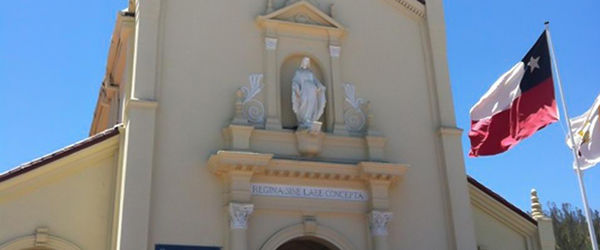In late November, 1982, while a graduate student in Louvain, Belgium, I began writing this column. That makes for 30 years! When I began writing this, I had no idea as to where this would go, no grand plan. I was putting notes into milk-bottles and floating them out to sea, across an ocean in this case, hoping somebody might read them. The first person who actually pulled a note from one of those bottles was Glenn Argan, the editor of the Western Catholic Reporter, in Edmonton, Canada. I will forever be in debt to him for being the first editor who took a chance on me. He is still editor at the Western Catholic today. It took some years for the column to attract any attention beyond that first newspaper, but eventually its audience began to widen. Here's a brief history of its development: The Green Bay Compass picked up the column in the mid-1980s. Cardinal Adam Maida, now in Detroit, was Bishop in Green Bay at the time. I met him at a conference several years ago and he reminded me that it was under his watch in Green Bay that my column was taken up by their diocesan paper, my first American readership. In the early 1990s, I received invitations to run the column from two national Canadian Catholic newspapers, the Prairie Messenger and the Catholic Register. That was a huge expansion: I was now in two countries, in four newspapers, and more than content with that as an audience. I've never had an agent, nor had the time or heart to actively try to solicit newspapers in terms of taking on the column and was content to simply let it find whatever life it might find on its own. I relied on providence and chance, and I got lucky, pure and simple. In 1987, I taught a summer course in theology at All Hallows College in Dublin and one of the students in the course was Delia Smith, famed in the United Kingdom for everything from theology to cooking to football. At that time I had published only one book, “The Loneliness Factor,” and had a modest portfolio of columns. Delia took the book to Hodder & Stoughton, a much-respected London publisher, and my portfolio of columns to Otto Herschan, the publisher then of the Catholic Herald in London. That one act forever changed the landscape of my writings.
When I began writing this, I had no idea as to where this would go, no grand plan. I was putting notes into milk-bottles hoping somebody might read them.
The Catholic Herald is a national newspaper in England, and is on newsstands as well in many cities worldwide. Moreover, at the time, Otto Herschan also published a national Catholic newspaper in both Ireland and Scotland. Hence the column was now published nationally in those countries as well. That exposure led to other national audiences, in New Zealand, among other countries. And Delia Smith's kindness in taking “The Loneliness Factor” to a major British publishing house also had a huge, eventual, impact on the column: In 1988, Hodder & Stoughton re-released the book under a new title, “The Restless Heart,” and it went on to win a major book award in the United Kingdom. That led to a publishing contract with Hodder & Stoughton and eventually that contract itself led to a contract with Doubleday in New York. After Doubleday published “The Holy Longing,” dozens of newspapers began to ask for the column, particularly in the United States, but in other English-speaking countries as well. After the release of “The Holy Longing,” the number of newspapers that carry the column rose from around ten to around 70, where it stands today. Part of that growth was also due to the efforts of the late Kay Lagried who, having brought the column to the diocesan newspaper in Seattle, began to solicit other newspapers to take it on. She became, until her untimely death two years ago, the agent I never had. Today the column is estimated to have a readership of well over one million readers. More recently the column has been translated in Spanish and Vietnamese and is now available in those languages. That's its "legal" availability. The column is also widely distributed on the internet and within numerous newspapers, newsletters, and church bulletins outside any permission or authorization from anyone. This is particularly true in some parts of Asia, where copyright laws are not as strict as here. Overall, I'm okay with this kind of pirating. I'm writing as a ministry and in most cases the people running the column without permission are doing so because they lack the financial resources to do so legally or because they feel they are so far down the rung of importance with anyone that it doesn't make a difference. Hats off to them! Sitting at a desk in Belgium in 1982, pecking away on a typewriter, I had no thoughts about longevity or world-readership. I was putting notes into milk-bottles and hoping somebody would find them. Thirty years later, now with a laptop instead of a typewriter, the effort and the dream remain the same. Oblate of Mary Immaculate Father Ronald Rolheiser is a specialist in the field of spirituality and systematic theology. His website is www.ronrolheiser.com.
{gallery width=100 height=100}gallery/2012/1214/rolheiser/{/gallery}

